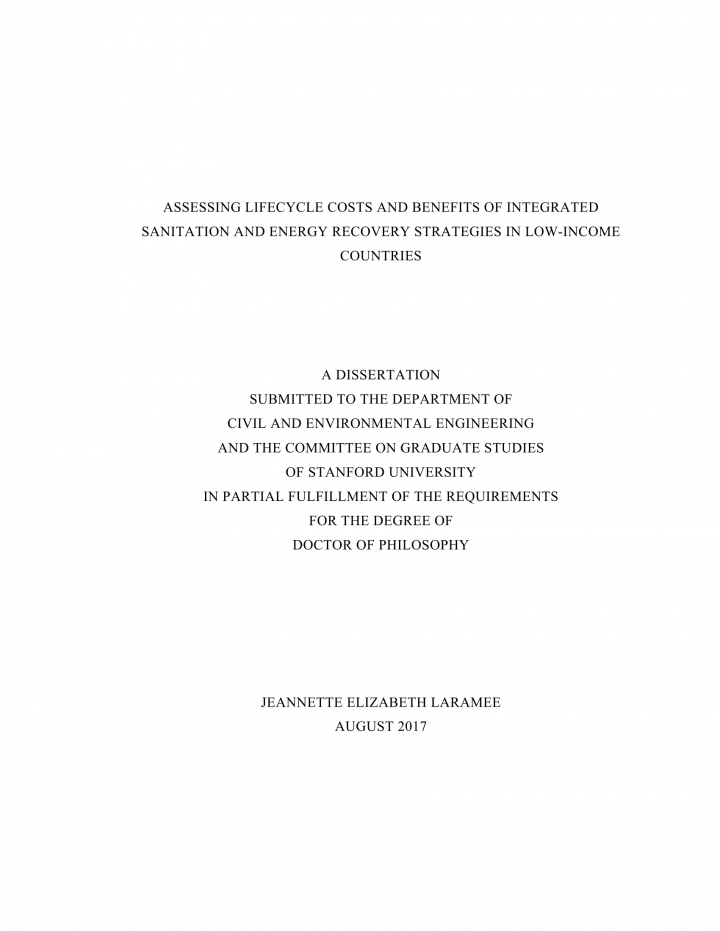Assessing Lifecycle Costs and Benefits of Integrated Sanitation and Energy Recovery Strategies in low-income Countries (PhD thesis) Laramee, J. E. (2017)
By mid-century, the global urban population is projected to increase by 2.4 billion people with 60% of growth expected to take place in cites of sub-Saharan Africa (SSA) and South Asia (SA) (UN-DESA, 2015). These regions have some of the lowest rates of urban sanitation coverage and modern fuel access, with only 41% and 67% estimated to have access to improved sanitation and 19% and 55% estimated to use modern fuels for cooking in SSA and SA, respectively (WHO/UNICEF, 2015a; Legros, et al. 2009).
In recent years, decentralized sewered and non-sewered sanitation management approaches have gained traction in low-income SSA and SA cities as alternatives to expensive and resource intensive conventional wastewater treatment. Energy recovery from domestic waste has also received increasing attention as a strategy to offset operational costs of sanitation services, provide alternative energy resources and reduce environmental impacts of waste treatment systems. Waste-to-energy technologies may simultaneously contribute to multiple Sustainable Development Goals (SDGs) including achieving universal access to safely managed sanitation; universal access to modern, clean fuels; and integration of climate change measures into national policies, strategies and planning including fostering low emissions development (UN, 2015). However, despite increasing adoption of alternative sewered and non sewered sanitation approaches and growing interest in energy recovery, little empirical evidence exists regarding the extent to which energy recovery may offset costs of sanitation systems and the long-term resource requirements, environmental impacts and financial costs and benefits of alternative sanitation approaches.
This dissertation (1) provides empirical evidence on the costs and benefits of integrated sanitation and energy recovery strategies in low-income countries, (2) develops a lifecycle based framework to enable sanitation planners to systematically investigate the resource use, environmental impacts and financial costs and benefits of decentralized sewered and non-sewered sanitation approaches and (3) demonstrates application of this framework using primary data from operational sanitation systems in Zambia and India, thus also generating the first comprehensive analyses of decentralized sewered and non-sewered sanitation management in urban SSA and SA.
Bibliographic information
Laramee, J. E. (2017). Assessing Lifecycle Costs and Benefits of Integrated Sanitation and Energy Recovery Strategies in low-income Countries (PhD thesis) Department of Civil and Environmental Engineering, Stanford University, United States
Filter / Tags
Biogas systems Decentralised wastewater treatment (e.g. DEWATS)Greywater or wastewaterUrban (entire city)EnglishEnergy: biogas
Downloads
Assessing Lifecycle Costs and Benefits of Integrated Sanitation and Energy Recovery Strategies in low-income Countries
Type: application/pdf
Size: 4.12 MB

